![Best .380 Pistol Options For Deep Carry [Tested] Best .380 Pistol Options For Deep Carry [Tested]](https://gundigest.com/wp-content/uploads/380-Pistol-Sig-768x496.jpg)
With improvements in defensive ammunition, the .380 pistol has surged in popularity. What are the top picks in the small and concealable option?
Until the world recently started truly going to hell in a handbasket, the .380 ACP pistol was all the rage. Not that it still isn’t. Any gun is better than no gun in the past couple of years. That said, full-sized 9mms with readily available extended-capacity magazines are looking pretty dang good right now. Who cares if it prints? But I digress.
Raising the humble .380 from the dead was one main factor: ammunition. Improvements in bullet design, providing consistent penetration and expansion took what was once a marginal self-defense cartridge and made it, well … marginally better. This is to say, the debate over whether it’s a smart move to carry a .380 ACP as your primary self-defense gun is alive, well and hot as ever.
So, before we ramble on to the top .380 pistol options available today, we should hit some of the pros and cons of the demure 9mm and its handguns.
Why You Want A .380 Pistol
Peruse .380 pistol options and it becomes evident the caliber has a huge advantage over almost every other. They’re small, downright minuscule. Over the years, the ubiquitous 9mm has made up ground. The likes of the Sig Sauer P365’s dimensions encroach on .380 territory. Still, this is the exception, not the rule … yet.
Since the key to concealed carry is concealing your firearms, these pocket pistols have a leg up. If you reside in a shorts and T-shirt climate, a Government Model 1911 is awfully difficult to keep under wraps. A Ruger LCP not so much. In turn, keeping a .380 pistol concealed is a somewhat easy task.
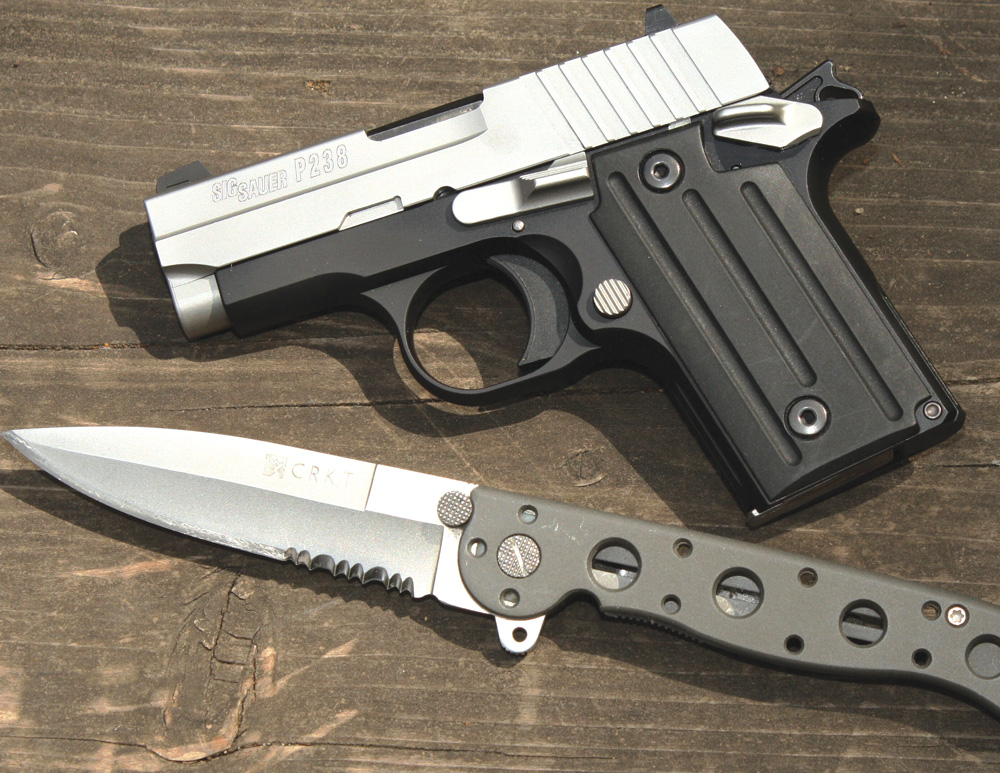
However, the clandestine nature of .380 handguns isn’t the main selling point. Fostering program compliance is. In layman’s terms, this means a gun you’ll carry every day. Easier said than done. However, smaller, lighter guns tend to promote diligence.
A big plus for the .380, yet, there are some less-than-desirable facets to the caliber and its guns that deserve thought.
Take Aim On The .380 ACP:
Why You Don’t Want A .380 Pistol
The size of .380 pistols is a major advantage, but it isn’t wholly a bed of roses. By and large, small guns are difficult to shoot well. Not impossible mind you, but to become proficient with a micro .380 takes more practice than say with a Glock 17.
There are some blatant reasons for this discrepancy:
Short Sight Radius: Sight radius is the distance between the front and rear sights. The less of it there is, the more difficult it becomes to hold on a target.
Abbreviated Grip: Most .380 pistols have a small grip, both in height and circumference. In turn, the guns prove difficult to keep firm control over, particularly in faster shot sequences.
Lightweight: It sure it is nice to have a featherweight on the hip until the time comes to pull the trigger. The lack of heft in most .380 pistols amplifies recoil. Add in the smaller grips, you’ve created a downright bucky handgun.
Low Capacity: The tradeoff for a highly concealable gun is the lack of rounds on tap. Expect a 6-round magazine to be the norm.
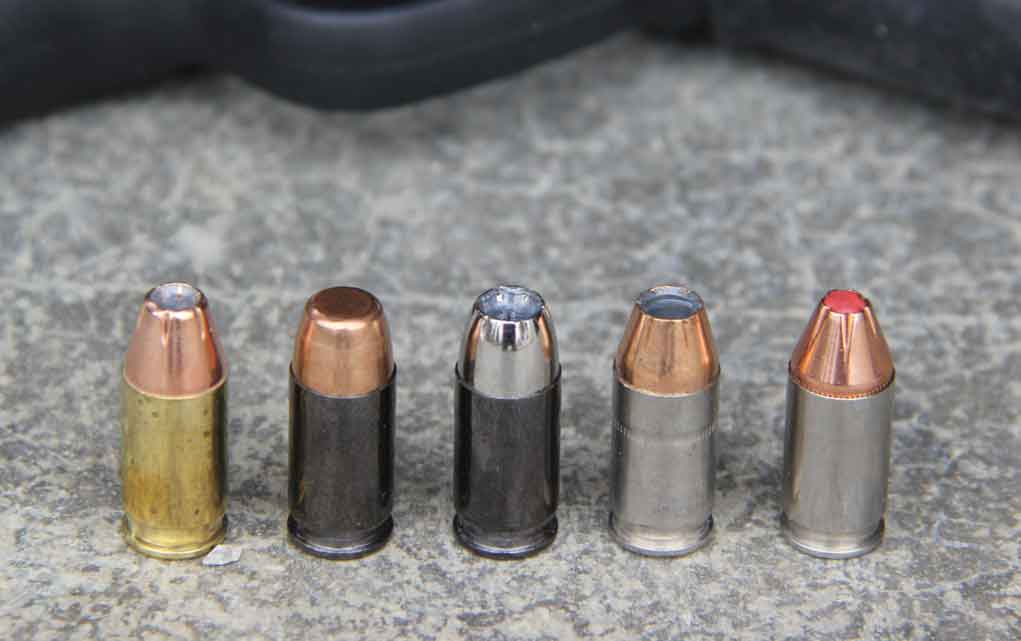

Ammunition is also a concern. While its indisputable .380 ACP has improved over the years, it still suffers from one major fault—middling velocities for the caliber. Worrisome, given velocity is the main variable dictating modern bullets’ performance. If not enough of it, the projectile won’t penetrate deep enough nor expand properly, if at all.
Does this mean the .380 isn’t legitimate for self-defense? Far from it. But it does mean doing your homework on the ammunition you’ll use to guard your life. Choose carefully.
Top .380 Pistol Picks For Concealed Carry
Specs Comparision Of The Best .380 ACP Pistols
| Model | Capacity | Barrel Length | Overall Length | Width | Weight | Height | Safety | Trigger Pull | MSRP |
| Sig Sauer P238 SAS | 7+1 | 3 inches | 5.9 inches | 1.1 inches | 16 ounces | 3.9 inches | Thumb | 7.5 pounds | $766 |
| Ruger LCP Max | 10+1 | 2.75 inches | 5.16 inches | .82 inch | 10.6 ounces | 3.60 inches | Trigger | 5 pounds | $479 |
| Smith & Wesson M&P380 Shield EZ | 8+1 | 3.68 inches | 6.70 inches | 1.04 inches | 18.3 ounces | 5.05 inches | Grip | 5 pounds | $459 |
| Walther PPK/S | 7+1 | 3.3 inches | 6.1 inches | 1 inch | 19 ounces | 4.3 inches | Thumb | 13.4 pounds; SA 6.1 pounds | $970 |
| Glock 42 | 6+1 | 3.25 inches | 5.75 inches | .83 inch | 15.9 ounces | 4.13 inches | Trigger | 5.40 pounds | $475 |
Sig Sauer P238 SAS
![Best .380 Pistol Options For Deep Carry [Tested] Best .380 Pistol Options For Deep Carry [Tested]](https://gundigest.com/wp-content/uploads/380-Pistol-Sig.jpg)
![Best .380 Pistol Options For Deep Carry [Tested] Best .380 Pistol Options For Deep Carry [Tested]](https://gundigest.com/wp-content/uploads/380-Pistol-Sig.jpg)
Pro
- Accurate as all get out
- Excellent trigger
- Weight is such that recoil is minimal
Con
- Expensive
- Very abbreviated grip
P238 Specs
Capacity: 7+1
Barrel Length: 3 inches
Overall Length: 5.9 inches
Width: 1.1 inches
Weight: 16 ounces
Height: 3.9 inches
Safety: Thumb
Trigger Pull Weight: 7.5 pounds
MSRP: $766
Ticking like a Swiss-made timepiece, the P238 had folks looking .380 ACP long before the cartridge regained popularity. And the carry-tailored SAS model is the cream of the cream.
Of course, Sig invested some sound engineering to conjure up a pocket pistol that runs like a full-size iron.
At its essence, the .380 pistol is a micro 1911 offering all the assets John M. Browning intended in perhaps his most famous design. A good example is a smashing single-action trigger that works overtime to ensure the 3-inch barreled gun’s accuracy.
As far as concealability, few beat the P238 SAS. At 3.9 inches in height and 16 ounces unloaded, it is legitimately a pocket pistol and would do well in this role.
I found the gun excellent in the accuracy department, able to keep on target consistently out to 10 yards. Furthermore, I found it comfortable to shoot–a rarity of small .380 pistols. This facet is aided in large part to the SAS’s rubberized and ergonomic grips that do a lot to overcome the short grip.
For some, there are sticky points. The thumb safety is one, the cost is the other. The 6+1 capacity P238 runs on the spendier end of the spectrum. Take solace, few ever feel the pistol is a waste of money.
One last bone to pick with the micro compact, it’s not the best-looking gun ever made. Sig tries to hide its blocky lines with flourishes on sub-models–different colors, scrollwork, etc. But lipstick doesn’t do much for the pig. If it saves your life, does any of that really matter.
Ruger LCP Max
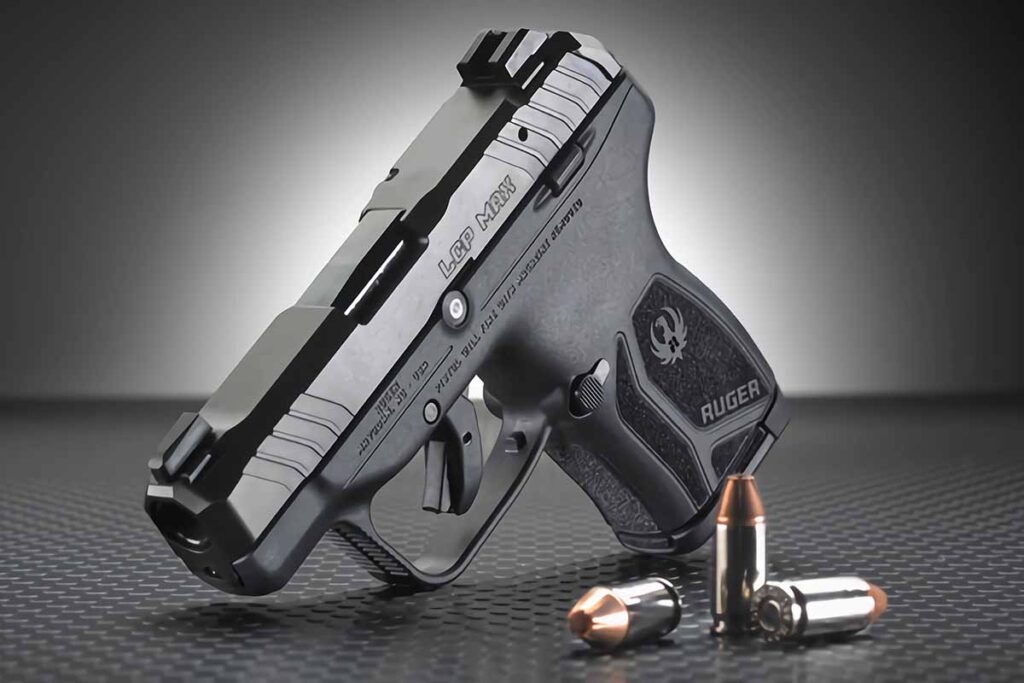

Pro
- Great price
- Very reliable
- Excellent capacity
Con
- Might be too small for some hands
- Small, low sights
LCP Max Specs
Capacity: 10+1
Barrel Length: 2.75 inches
Overall Length: 5.16 inches
Width: .82 inch
Weight: 10.6 ounces
Height: 3.60 inches
Safety: Trigger
Trigger Pull Weight: 5 pounds
MSRP: $479
Was the third time the charm? If you’re talking about Ruger’s LCP, then it’s a resounding yes!
The third iteration of the nearly legendary .380 pistol boasts nearly everything fans of the design have begged for. Chief among these is normal dang sights.
I can’t tell you what a difference this upgrade is, given I found the integral sights of the LCP II (now a .22LR) abhorrent. The more prominent and white outlined rear sight in conjunction with the Tridium front makes for a workable aiming system. And the gun response, within workable defensive distances.
I won’t say I found the Max a tack driver, but I was more than capable of connecting consistently at center mass from 10 yards. Essentially, that makes the cut for a .380 pistol.
Almost as good, the gun has nearly a best-in-class capacity carrying 10-1 rounds. Ruger turned to a double-stack magazine to accomplish this, slightly widening the grip of the hammer-fired gun. As a side benefit, I found the Max more comfortable in hand than the previous LCPs.
All this, the gun isn’t one you’ll pick up for pleasure. Like its predecessors it’s a jumpy pistol and feels like shooting exactly what it is, a .380 pocket pistol. But very concealable and accurate as it needs to be, you won’t lose any love for its deficit as a plinker.
It definitely has the stuff that will get you carrying it every day.
Smith & Wesson M&P380 Shield EZ


Pro
- Easy slide to rack
- Light recoil
- Priced right
Con
- Grip safety is unseemly
- Need more fore cocking serrations
M&P380 Shield EZ Specs
Capacity: 8+1
Barrel Length: 3.68 inches
Overall Length: 6.70 inches
Width: 1.04 inches
Weight: 18.3 ounces
Height: 5.05 inches
Safety: Grip
Trigger Pull Weight: 5 pounds
MSRP: $459
Everyone knows the skinny on Smith & Wesson’s EZ line—the hammer-fired gun has an extremely easy (get it) slide to manipulate.
The idea behind the pistol is to give those who have trouble with heavy slide-rack weight an option in what otherwise might prove a prohibitive class of guns.
Yet, I’d argue the EZ .380 is on target for nearly any shooter in the market for this caliber of pistol. Yeah, you might get razed by your buddies and your manhood questioned—endure this and you have a fine defensive option, one you can trust your life with.
Aside from a slide you can rack with your pinky, the EZs I’ve shot are spot-on accurate and honestly quick to manipulate.
The sights are high, made of metal and very familiar to anyone used to the three-dot system. And in my opinion, Smith & Wesson got grip texturing right on the M&P line—a solid purchase on the pistol and it’s not going anywhere.
As for the bad aspects of the gun, I don’t dig grip safety, namely for aesthetics. In use, I barely noticeable, if you get a solid fundamental grip.
My other point of contention is the front cocking serrations or the very minimal amount. They’re there, peppered just around the release cut, but that’s about it. For most, this isn’t an issue, given you can nab slick metal on the slide and its lack of resistance still means you can actuate it.
But it does concern me for those the gun is aimed at—those with poor hand strength.
Walther PPK/S
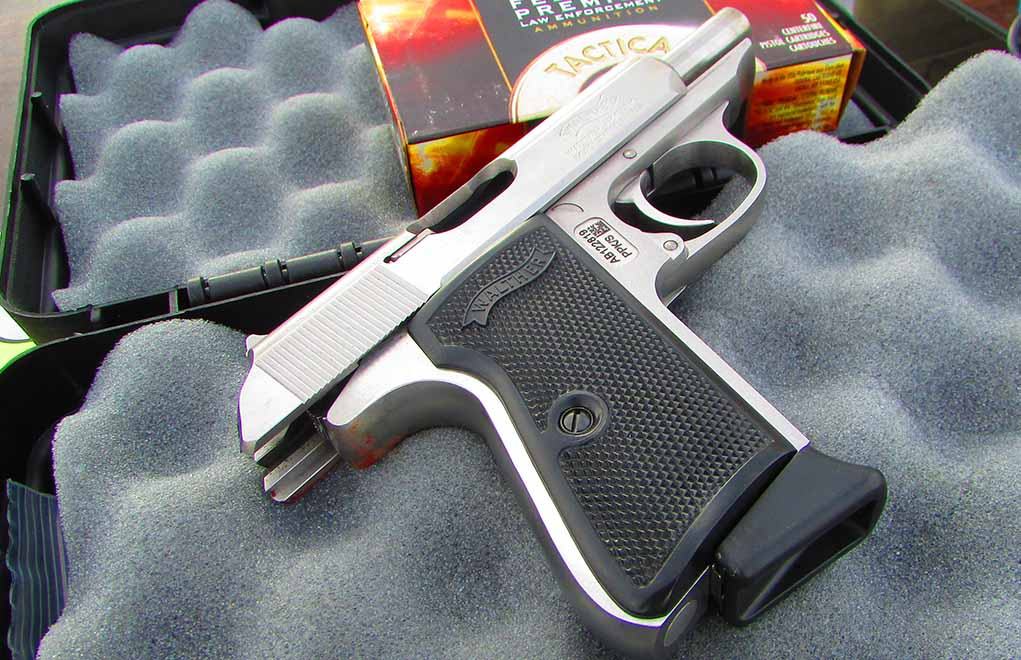

Pro
- Pristine fit and finish
- Extremely accurate
- About as classic as it gets
Con
- Slide can bite
- Heavy double-action trigger pull
- Magazine doesn’t play nice with all ammo
- Very Expensive
PPK/S Specs
Capacity: 7+1
Barrel Length: 3.3 inches
Overall Length: 6.1 inches
Width: 1 inch
Weight: 19 ounces
Height: 4.3 inches
Safety: Thumb
Trigger Pull Weight: DA: 13.4 pounds; SA 6.1 pounds
MSRP: $970
As an one who grew up on James Bond flicks, the PPK line have always stirred my imagination. Truly, it’s one of the classics. And while the design is long in the tooth, the pistol still holds its own in modern concealed carry. Larger than the original PPK, the PPK/S is easier to shoot and is accurate as the day is long.
At the same tick, the .380 pistol is plum concealable in every sense of the word. More suited to tote around on the hip—19 ounces—the PPK/S can pull pocket-carry duty in a pinch.
As far as accuracy, two words sum up the pistol: dead nuts. Much of this is thanks to a fixed barrel, a feature that eliminates any barrel wiggle and makes the dashing heater a natural pointer.
However, it is a straight blowback action, which means it tends to produce stouter felt recoil. Additionally, the PPK/S has a DA/SA trigger. A good one, mind you. But you must remember that the first trigger pull is a hefty 13 pounds or thereabouts.
I’ll point out two other issues I encountered. I got bitten by the slide, which could have been due to larger hands. And the magazines wouldn’t play nice with some brands of ammo. Not the gun mind you, but the magazines could load hollow points with large cavities–thing Sig Sauer.
All that side, the pistol remains the cream of .380 and is more than proficient at defending your life. And there’s no better time than now to get one, as Walther is once again is the exclusive manufacturer, which adds up to excellent fit, finish and quality control.
Glock 42
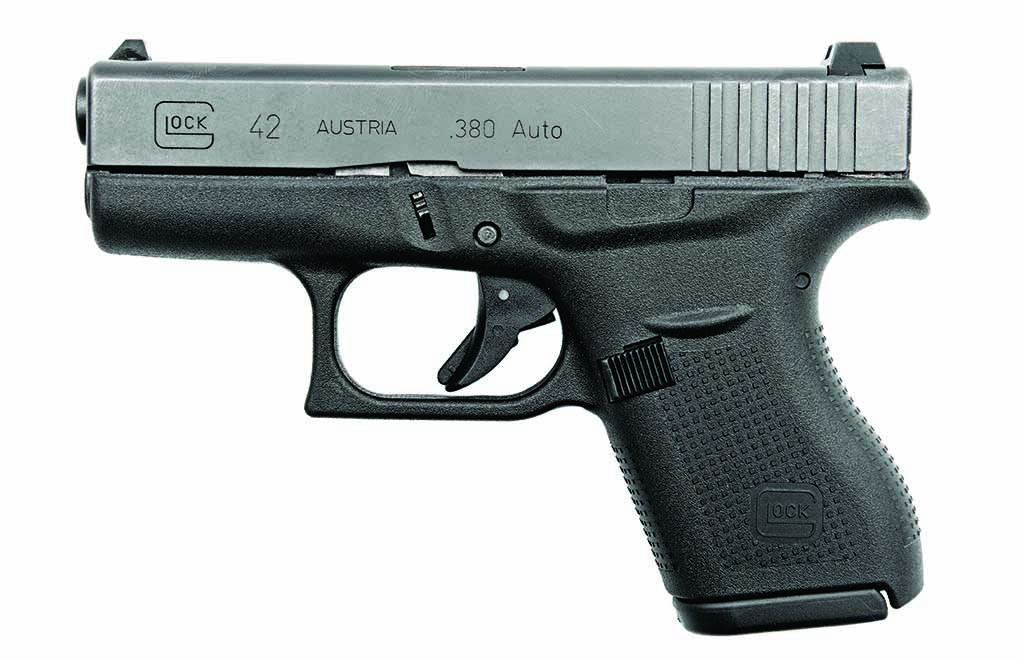

Pro
- Good trigger
- Comfortable Size
- Reliable (it’s a Glock)
Con
- Plastic sights
- Magazines sometimes stick on reloads
G42 Specs
Capacity: 6+1
Barrel Length: 3.25 inches
Overall Length: 5.75 inches
Width: .83 inch
Weight: 15.87 ounces
Height: 4.13 inches
Safety: Trigger
Trigger Pull Weight: 5.40 pounds
MSRP: $475
Among the most highly anticipated guns in the past decade, the G42 didn’t disappoint. Concealable, familiar and, above all, reliable, the .380 pistol ticked all the boxes of a deep-cover concealed carry piece. In short, it’s a Glock.
Admittedly, the G42 has been overshadowed in recent years by Glock’s petite 9mm offerings. But it still has a place in on-person defense. Particularly due to its shootability. Its larger size relative to other .380s is partly to thank for this, with the gun measuring in at 4.13 inches in height and .98 inches in width.
Like most Glocks, the striker-fired has a decently crisp trigger out of the box and a short reset. In turn, those familiar with the gun can run it fast, accurately so. However, if it or any other part of the G42 isn’t up to your standards, the Glock aftermarket is huge and the pistol is upgradeable.
I will say, like many, I’m not overly fond of the steep grip rake of the G42 or any Glock for that matter. And the dimensions of the gun are great enough you might as well upgrade to a 9mm micro-compact.
Smith & Wesson M&P380 Shield EZ
Pro
- Easy slide to rack
- Light recoil
- Priced right
Con
- Grip safety is unseemly
- Need more fore cocking serrations
M&P380 Shield EZ Specs
Capacity: 8+1
Barrel Length: 3.68 inches
Overall Length: 6.70 inches
Width: 1.04 inches
Weight: 18.3 ounces
Height: 5.05 inches
Safety: Grip
Trigger Pull Weight: 5 pounds
Everyone knows the skinny on Smith & Wesson’s EZ line—the hammer-fired gun has an extremely easy (get it) slide to manipulate.
The idea behind the pistol is to give those who have trouble with heavy slide-rack weight an option in what otherwise might prove a prohibitive class of guns.
Yet, I’d argue the EZ .380 is on target for nearly any shooter in the market for this caliber of pistol. Yeah, you might get razed by your buddies and your manhood questioned—endure this and you have a fine defensive option, one you can trust your life with.
Aside from a slide you can rack with your pinky, the EZs I’ve shot are spot-on accurate and honestly quick to manipulate.
The sights are high, made of metal and very familiar to anyone used to the three-dot system. And in my opinion, Smith & Wesson got grip texturing right on the M&P line—a solid purchase on the pistol and it’s not going anywhere.
As for the bad aspects of the gun, I don’t dig grip safety, namely for aesthetics. In use, I barely noticeable, if you get a solid fundamental grip.
My other point of contention is the front cocking serrations or the very minimal amount. They’re there, peppered just around the release cut, but that’s about it. For most, this isn’t an issue, given you can nab slick metal on the slide and its lack of resistance still means you can actuate it.
But it does concern me for those the gun is aimed at—those with poor hand strength.
Read the full article here


![Best .380 Pistol Options For Deep Carry [Tested] Best .380 Pistol Options For Deep Carry [Tested]](https://i2.wp.com/gundigest.com/wp-content/uploads/380-Pistol-Sig.jpg?w=1024&resize=1024,1024&ssl=1)








